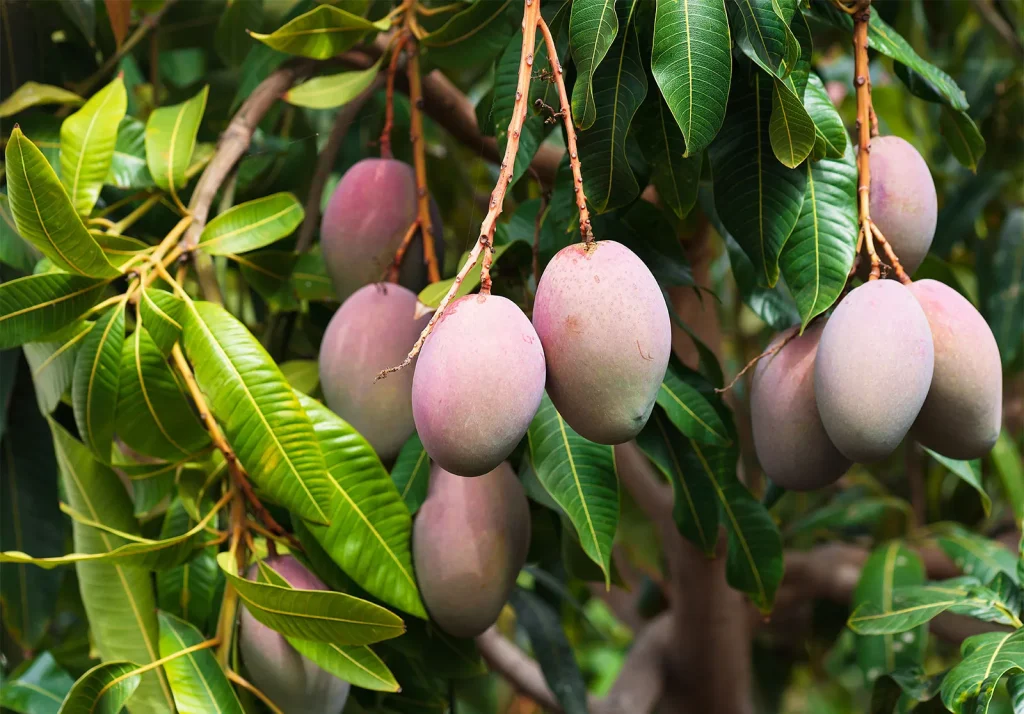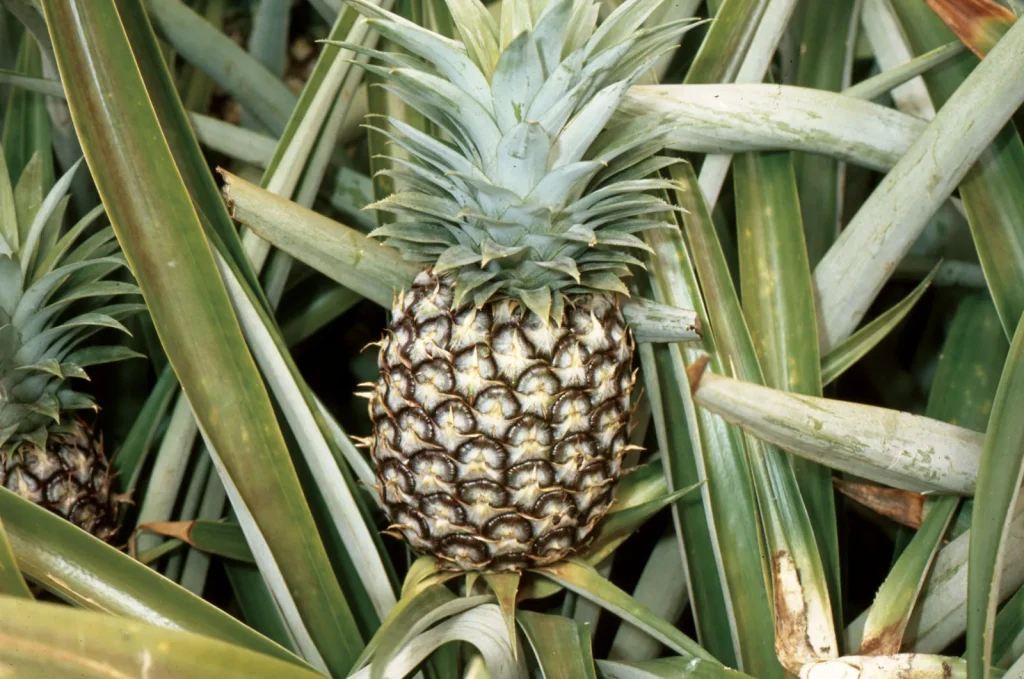Guava, often dubbed the “superfruit” of the tropics, is one of nature’s most underrated gems. This small, round or pear-shaped fruit, known for its sweet and slightly tangy flavor, is packed with nutrients and offers a plethora of health benefits. Native to Central America, guava has made its way to tropical and subtropical regions worldwide, becoming a beloved staple in countries like India, Brazil, and Thailand. Despite its humble appearance, guava is a powerhouse of vitamins, minerals, and antioxidants, making it a valuable addition to any diet.
In this comprehensive guide, we’ll explore the origins of guava, its varieties, nutritional profile, health benefits, and versatile culinary uses. We’ll also dive into interesting facts about this amazing fruit and provide tips on how to select and store it.
The Origins of Guava
The history of guava dates back thousands of years, originating in the tropical regions of Central America, Mexico, and northern South America. Indigenous people of these areas consumed guava as a staple fruit long before European explorers discovered it. When the Spanish and Portuguese colonizers arrived in the Americas, they were introduced to the delicious and nutritious guava fruit. Soon after, they spread its seeds across the globe, introducing guava to various countries in Asia, Africa, and Oceania.
Today, guava is cultivated in over 60 tropical and subtropical countries, with India being the largest producer, followed by China, Thailand, and Indonesia. Its widespread cultivation is a testament to its popularity and adaptability.
The Different Varieties of Guava
Guava comes in various shapes, sizes, and flavors, each offering a unique taste experience. Some of the most common varieties include:
1. Apple Guava (Psidium guajava)
The most widely consumed variety, apple guava, is known for its round or oval shape and green or yellow skin. Inside, the flesh can range from white to pink, with numerous small, edible seeds. It has a sweet, slightly tart flavor and is often enjoyed fresh or in juices.
2. Strawberry Guava (Psidium cattleianum)
As the name suggests, strawberry guava has a taste reminiscent of strawberries. It is smaller than apple guava, with a reddish-purple skin and white flesh. This variety is particularly popular in Hawaii and Brazil.
3. Lemon Guava (Psidium littorale)
Lemon guava is a smaller, round variety with a yellowish skin and a flavor that combines the tanginess of lemon with the sweetness of guava. It is often used in making jams, jellies, and sauces.
4. Pineapple Guava (Feijoa sellowiana)
Pineapple guava, also known as feijoa, has a green skin and aromatic, juicy flesh. Its taste is a unique blend of pineapple, mint, and guava flavors. It is commonly found in South America and New Zealand.
5. Red Malaysian Guava
This variety is known for its vibrant pink flesh and sweet taste. It is popular in Southeast Asia and is often used in making desserts and smoothies.
The Nutritional Powerhouse of Guava
Guava is a nutrient-dense fruit, packed with vitamins, minerals, and antioxidants. Here is a breakdown of its nutritional content per 100 grams:
- Calories: 68
- Carbohydrates: 14 grams
- Dietary Fiber: 5.4 grams (22% of the Daily Value)
- Vitamin C: 228.3 mg (over 200% of the Daily Value)
- Vitamin A: 624 IU (12% of the Daily Value)
- Folate (Vitamin B9): 49 micrograms (12% of the Daily Value)
- Potassium: 417 mg (9% of the Daily Value)
- Magnesium: 22 mg (6% of the Daily Value)
One of the standout features of guava is its exceptionally high vitamin C content. In fact, just one medium-sized guava can provide more than double the daily recommended intake of vitamin C, making it an excellent immune booster.
Health Benefits of Guava
Guava isn’t just tasty; it’s also a powerhouse of health benefits. Let’s explore some of the key reasons why you should consider adding this tropical fruit to your diet:
1. Boosts Immune System
Thanks to its high vitamin C content, guava is a potent immune booster. Vitamin C helps the body fight off infections by promoting the production of white blood cells, which are essential for defending against pathogens.
2. Supports Heart Health
The fiber and potassium in guava can help lower blood pressure and cholesterol levels, reducing the risk of heart disease. The fruit’s antioxidants, particularly lycopene and vitamin C, also play a role in protecting the heart by preventing oxidative damage.
3. Aids in Digestion
Guava is rich in dietary fiber, which is essential for maintaining a healthy digestive system. The fiber content helps prevent constipation by promoting regular bowel movements and improving gut health. Additionally, the fruit’s natural antibacterial properties can help eliminate harmful bacteria in the intestines.
4. Regulates Blood Sugar Levels
For those managing diabetes, guava can be a great addition to the diet. Its low glycemic index and high fiber content help regulate blood sugar levels by slowing down the absorption of sugar into the bloodstream. Studies have shown that guava leaf extract may also improve blood sugar control.
5. Promotes Skin Health
The antioxidants in guava, such as vitamin C and beta-carotene, play a vital role in maintaining healthy, glowing skin. These antioxidants help combat free radicals, which can cause premature aging and skin damage. Regular consumption of guava or applying guava leaf extract topically can improve skin texture and reduce acne.
6. Enhances Vision
Guava contains a good amount of vitamin A, which is crucial for maintaining healthy vision. Vitamin A helps protect the cornea and can prevent eye-related disorders such as macular degeneration and cataracts.
7. Helps in Weight Management
Guava is low in calories and high in fiber, making it an excellent fruit for weight management. The fiber content helps keep you feeling full, reducing overall calorie intake and preventing overeating.
Culinary Uses of Guava
Guava’s unique flavor and versatility make it a favorite ingredient in various culinary applications. Here are some popular ways to enjoy guava:
1. Fresh Eating
The simplest way to enjoy guava is to eat it fresh. You can slice it and eat it as is, or sprinkle it with a little salt or chili powder for an extra kick. The skin and seeds are edible, though some people prefer to remove the seeds.
2. Juices and Smoothies
Guava juice is a popular beverage in many tropical countries. Its sweet and tangy flavor makes it a refreshing drink, often mixed with other fruits like pineapple or orange. Guava smoothies are also a delicious way to enjoy the fruit’s nutrients.
3. Jams, Jellies, and Pastes
Guava is commonly used in making jams, jellies, and pastes due to its natural pectin content. Guava paste, known as “goiabada” in Brazil, is a thick, sweet preserve that pairs well with cheese and is often used in desserts.
4. Desserts and Baked Goods
Guava is a popular ingredient in desserts such as pies, tarts, cakes, and ice creams. Its sweet flavor adds a tropical twist to baked goods and sweet treats.
5. Savory Dishes
In some cultures, guava is used in savory dishes, such as salsas and chutneys. It pairs well with meats like pork and chicken, adding a sweet and tangy flavor to the dishes.
Tips for Selecting and Storing Guava
- Selecting: When buying guava, look for fruits that are firm yet yield slightly to pressure. The skin should be free of blemishes or dark spots. Depending on the variety, guava can be green, yellow, or reddish when ripe.
- Storing: Unripe guava can be stored at room temperature to ripen. Once ripe, store it in the refrigerator to extend its freshness. It can last up to a week when refrigerated.
Fun Facts About Guava
- Guava is often called the “apple of the tropics.”
- In traditional medicine, guava leaves are used to treat ailments like diarrhea and toothaches.
- Guava trees can live up to 40 years and can produce fruit throughout the year in tropical climates.
- The seeds of guava are edible and are a good source of dietary fiber.
Conclusion
Guava is a fruit that offers a delightful combination of taste, nutrition, and versatility. Its impressive nutritional profile and numerous health benefits make it a must-have in your diet. Whether you enjoy it fresh, as a juice, in a dessert, or even as a savory dish, guava is a fruit that can be enjoyed in countless ways.
With its rich history, diverse varieties, and potential health benefits, guava truly deserves its title as a superfruit. So the next time you come across this tropical delight, don’t hesitate to pick one up and enjoy the delicious, nutritious experience it has to offer.


